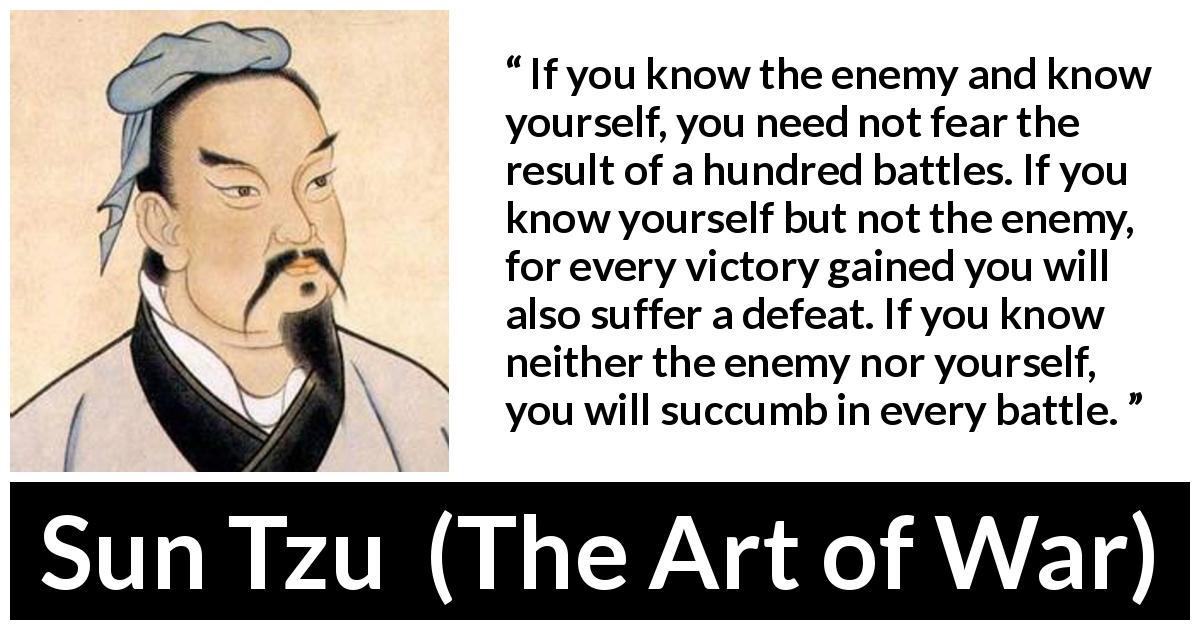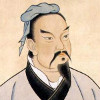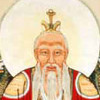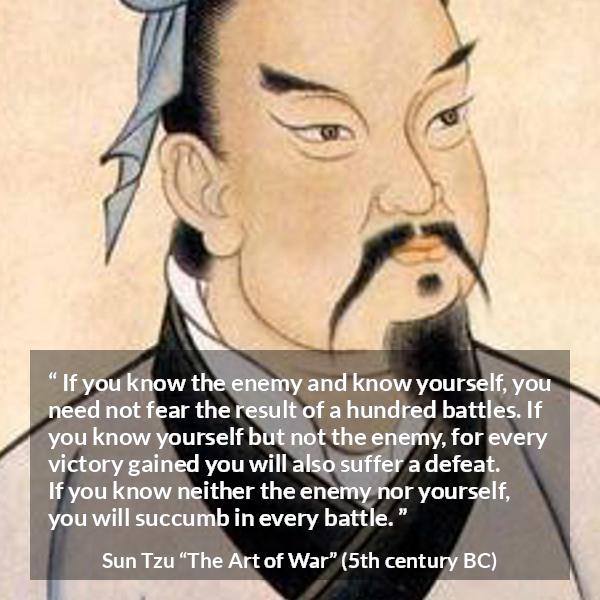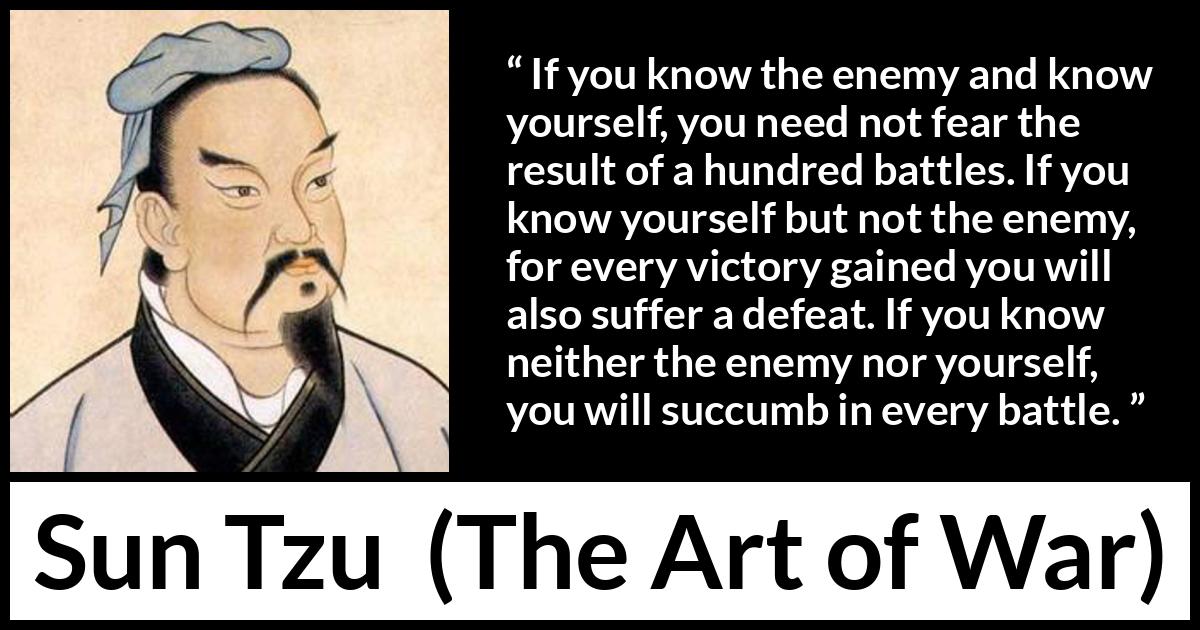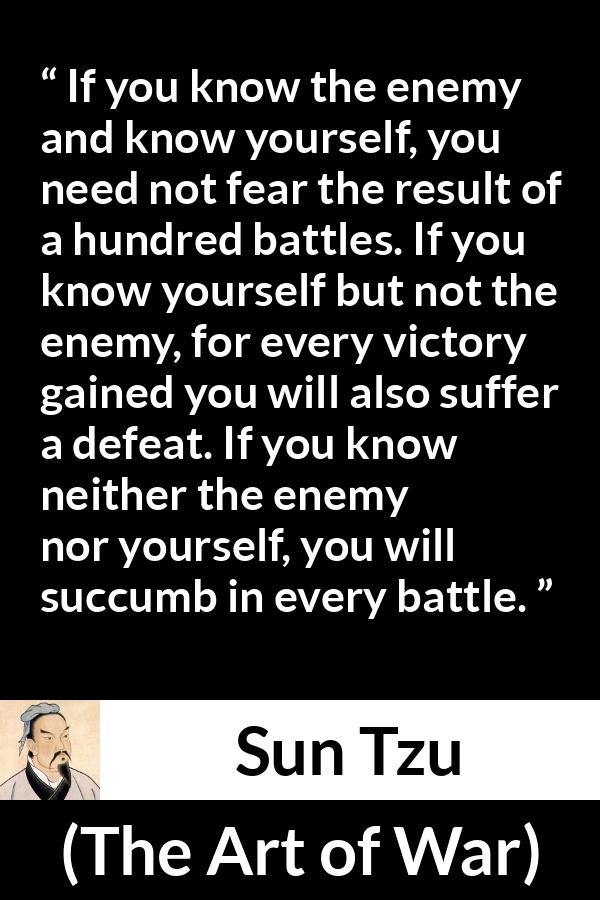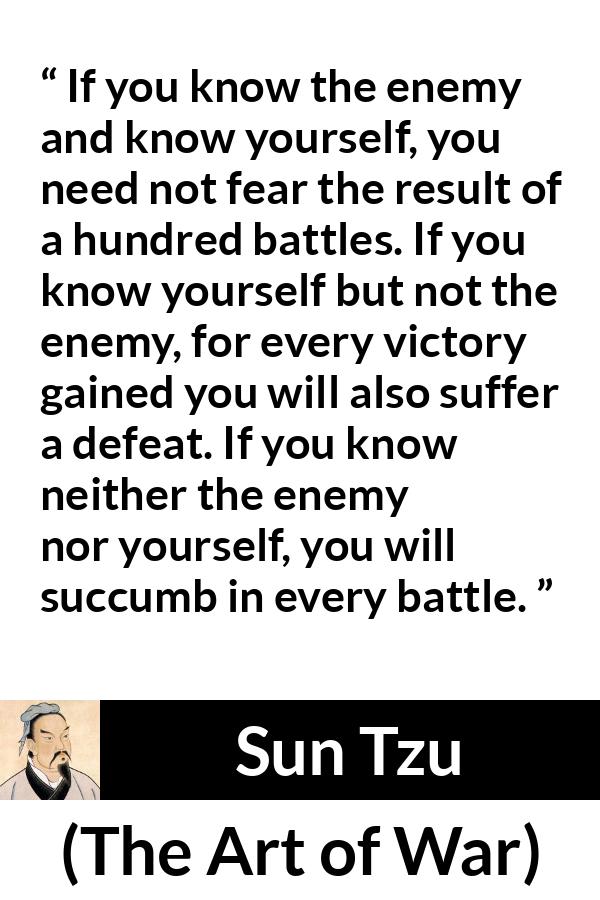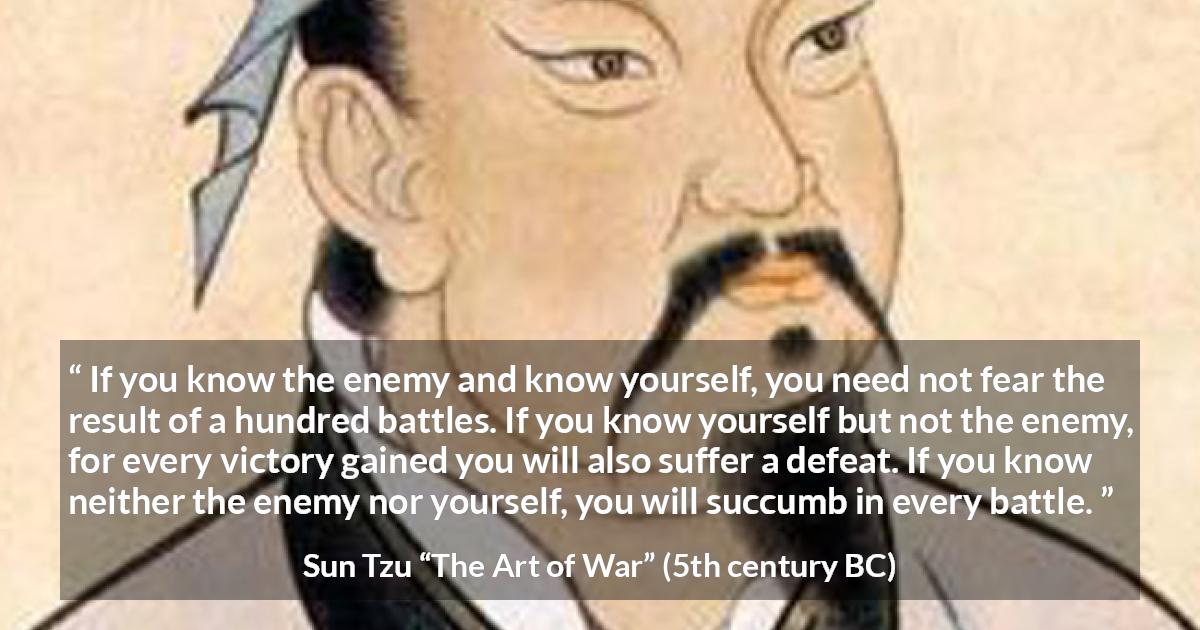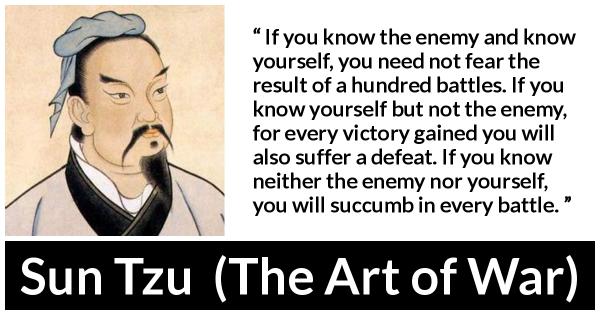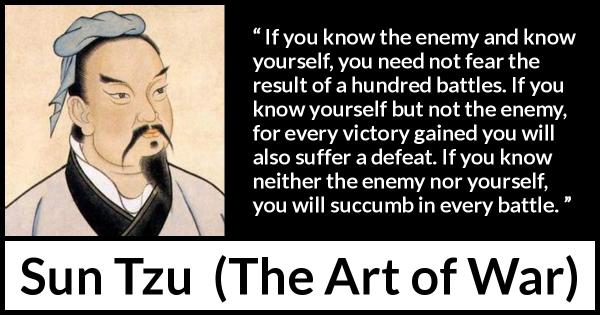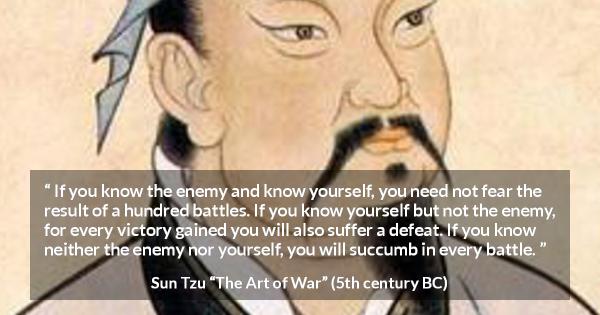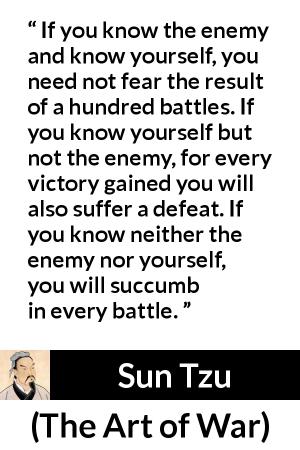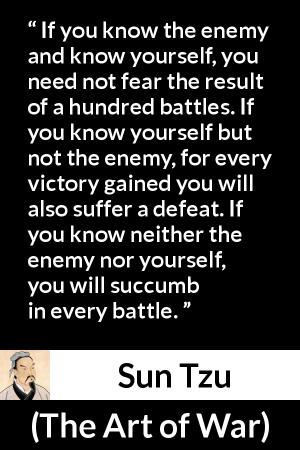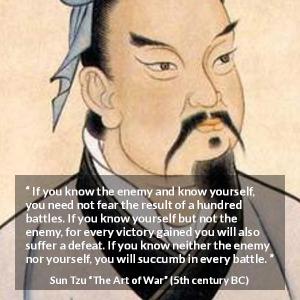“ If you know the enemy and know yourself, you need not fear the result of a hundred battles. If you know yourself but not the enemy, for every victory gained you will also suffer a defeat. If you know neither the enemy nor yourself, you will succumb in every battle. ”
Sun Tzu, The Art of War (5th century BC). copy citation
| Author | Sun Tzu |
|---|---|
| Source | The Art of War |
| Topic | self-knowledge battle enemy |
| Date | 5th century BC |
| Language | English |
| Reference | |
| Note | Translated by Lionel Giles |
| Weblink | http://www.gutenberg.org/files/17405/17405-h/17405-h.htm |
Context
“(3) He will win whose army is animated by the same spirit throughout all its ranks. (4) He will win who, prepared himself, waits to take the enemy unprepared. (5) He will win who has military capacity and is not interfered with by the sovereign. 18. Hence the saying: If you know the enemy and know yourself, you need not fear the result of a hundred battles. If you know yourself but not the enemy, for every victory gained you will also suffer a defeat. If you know neither the enemy nor yourself, you will succumb in every battle.
IV. TACTICAL DISPOSITIONS
1. Sun Tzu said: The good fighters of old first put themselves beyond the possibility of defeat, and then waited for an opportunity of defeating the enemy.
2. To secure ourselves against defeat lies in our own hands, but the opportunity of defeating the enemy is provided by the enemy himself.” source
IV. TACTICAL DISPOSITIONS
1. Sun Tzu said: The good fighters of old first put themselves beyond the possibility of defeat, and then waited for an opportunity of defeating the enemy.
2. To secure ourselves against defeat lies in our own hands, but the opportunity of defeating the enemy is provided by the enemy himself.” source
